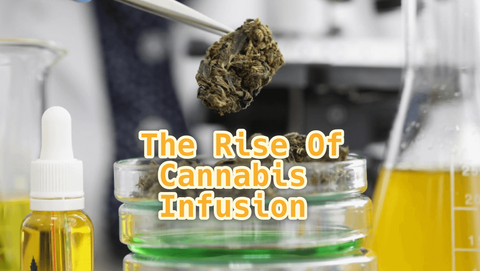Latest Blog Posts
Top rated
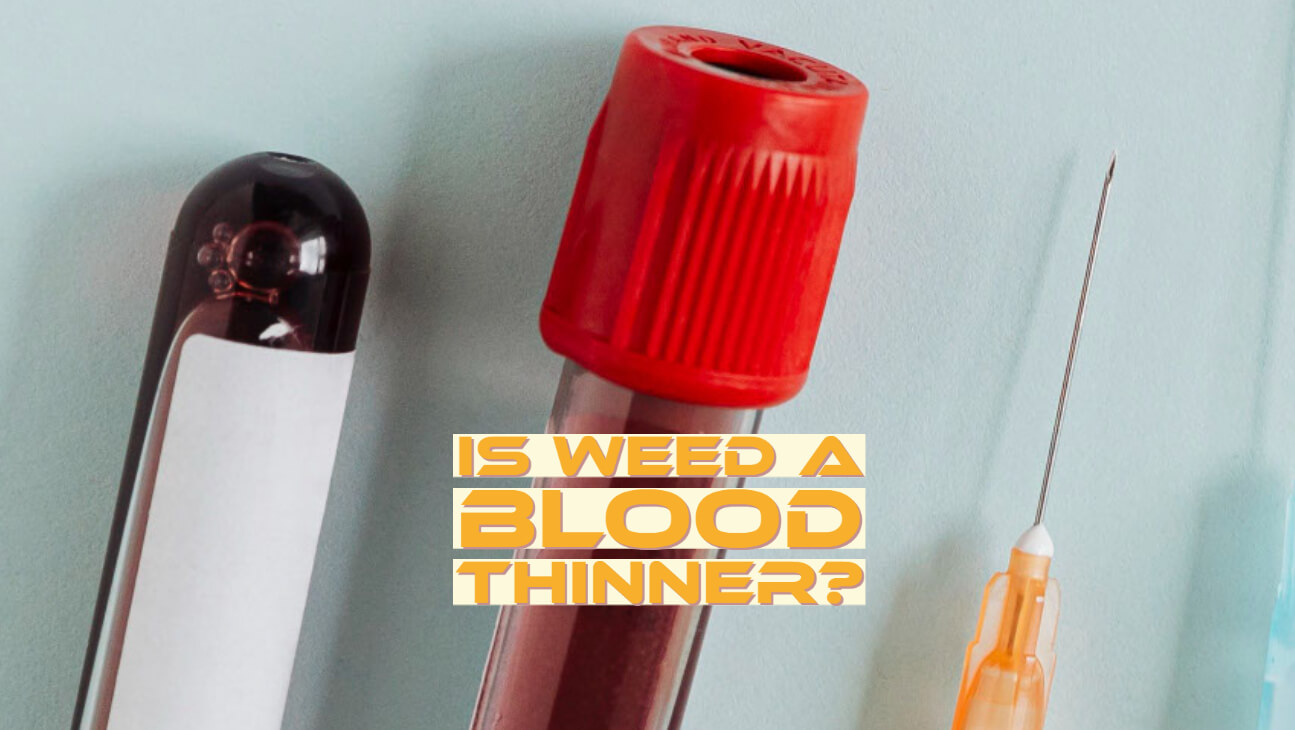
Is Weed A Blood Thinner?
In recent years, there have been significant shifts in the environment surrounding weed as a result of the continued rise in popularity of the substance and the increased investigation into the possible medical benefits it may offer. The potential connection between weed use and its effect on blood thinning is a topic that has drawn a lot of attention recently.
Blood thinners, also known as anticoagulants, play an essential part in medical therapies by preventing or reducing blood clotting, which can lead to significant health consequences. It is crucial to have a solid understanding of the effects and possible consequences that weed may have on blood thinning, especially in light of the growing number of people who are adopting weed into their wellness routines.
To begin unraveling this complex topic, it is essential to understand cannabis itself. Cannabis is the generic name for a group of flowering plants that contains both marijuana and hemp among its members. Cannabinoids and terpenes are two types of chemical compounds that can be found in these plants. These molecules are responsible for the plants' distinctive effects. It is usual practice to consume cannabis through smoking, vaporizing, ingesting it, or applying it topically; doing so enables the active components to interact with the body's physiological systems.
When thinking about the effects of weed on blood thinning, the cardiovascular system, which is the part of the body that is in charge of distributing blood to the rest of the body, becomes a primary focus of attention. According to research, weed may affect both the rate at which your heart beats and your blood pressure, which may, in turn, have an effect on how your blood clots.
Notably, the cannabinoids tetrahydrocannabinol (THC) and cannabidiol (CBD), which are both prevalent in cannabis, have attracted a lot of research for the possible effects they have on platelet aggregation and the formation of blood clots.
The study landscape is still very restricted and unclear, even though scientific investigations have shed some light on the connection between weed and blood thinning. Although previous studies have shed some light on the potential pathways through which cannabis components may affect blood coagulation, more extensive investigation is required to completely comprehend the possible adverse effects on health. Furthermore, individual responses to cannabis can differ according to characteristics such as age, gender, and heredity; therefore, tailored consideration is essential.
In this article, you will investigate the topic of cannabis as a possible blood thinner. You'll see the present scientific evidence, the perspectives of many experts, and the legal and regulatory environment surrounding cannabis use.
What Is Weed?
What exactly is a weed? It is a plant that has been cultivated for a long time and has been used for a wide variety of purposes. It is more commonly known as weed, cannabis, marijuana, or pot. Cannabis is a plant that encompasses several diverse species, including Cannabis sativa, Cannabis indica, and Cannabis ruderalis. Throughout the years, many different civilizations have cultivated this plant and used it for a variety of purposes, including medical, spiritual, and recreational uses.
Cannabinoids are a class of chemical compounds that are found in the cannabis plant. The cannabinoids tetrahydrocannabinol (THC) and cannabidiol (CBD) are the most well-known of these substances.
THC is the primary component responsible for the psychoactive effects that are linked with marijuana, which causes users to experience a euphoric "high" when the substance is consumed. On the contrary, CBD does not cause intoxication and is now receiving attention due to its possible therapeutic characteristics.
Types Of Cannabis: Marijuana And Hemp
Marijuana and hemp are the two most common forms of cannabinoids found in cannabis. Marijuana is grown mainly for its high concentration of THC, and it is used for recreational or therapeutic purposes. It is typically ingested via smoking, vaporizing, or mixing it into foods and beverages.
On the contrary, hemp is grown specifically for industrial purposes and only has trace amounts of the psychoactive compound THC. While hemp seeds are used in both the culinary world and the supplement industry, hemp fibers can be used in various fields, including textiles, paper, and building materials.
The effects of weed can be somewhat variable depending on factors such as the strain, its potency, the manner in which it is consumed, and the user themselves. Relaxation, euphoria, an altered perspective of time, increased appetite, and heightened sensory experiences are among the most often reported effects of cannabis use.
Cannabidiol, or CBD, is extracted from the cannabis plant and used for a variety of medical purposes, including the treatment of chronic pain, the alleviation of nausea, the stimulation of appetite, and the improvement of symptoms associated with illnesses such as multiple sclerosis, epilepsy, and cancer.
The legal status of weed varies widely across the world. Some countries and states have decriminalized it for use in medicine and/or for recreational reasons, while others keep up with strict regulations or completely outlaw it. Frequent limits on age, cultivation, distribution, and taxes are imposed in those parts of the country where it is lawful to do so.
It is vital to keep in mind that even though marijuana use may have some potential benefits, there are also hazards involved. Cannabis usage that is either excessive or reckless can have a temporary negative impact on a person's cognitive function, memory, and coordination. Long-term, excessive use may have repercussions on mental health and the possibility of addiction, particularly in persons who are prone to these effects.
Chemical Composition Of Cannabis: Cannabinoids And Terpenes
The exciting chemical makeup of cannabis is one of the factors that lead to the drug's wide range of effects as well as its potential therapeutic benefits. Cannabinoids and terpenes are the two types of chemical compounds that are most common in cannabis.
Cannabinoids are a group of chemical compounds that can interact with the endocannabinoid system of the body, which is an essential component in controlling many different physiological functions. Tetrahydrocannabinol (also known as THC) and cannabidiol (known as CBD) are the two cannabinoids contained in cannabis that receive the most attention. The "high" that is commonly associated with marijuana usage is caused by THC, which is the cannabinoid that is responsible for the psychoactive effects of cannabis.
Cannabidiol, or CBD, does not result in euphoria and is becoming increasingly recognized for its potential therapeutic applications. Cannabinol (CBN), Cannabigerol (CBG), and Cannabichromene (CBC) are some of the other cannabinoids that may be found in cannabis. Each of these cannabinoids has its own set of qualities and possible advantages.
Terpenes are aromatic chemicals that provide cannabis with its characteristic flavor and scent. They are not limited to cannabis and may be discovered in a wide variety of plants, where they contribute to the distinctive odors of those plants. Cannabinoids are thought to enhance or modify the effects of terpenes through a phenomenon known as the entourage effect.
Terpenes are believed to work synergistically with cannabinoids. Myrcene, limonene, pinene, and linalool are all examples of specific terpenes that can be discovered in cannabis. Each terpene has its own unique scent and maybe beneficial characteristics for medicinal use. For instance, myrcene is recognized for its ability to reduce stress, but limonene is recognized for its ability to increase one's mood and energy levels.
Exact Effects And Possible Benefits Of A Cannabis Strain
The exact effects and possible benefits of a cannabis strain are mostly determined by the cannabinoid and terpene profiles of that strain, as well as the ratios between those profiles. The cannabinoid and terpene profiles of various strains of cannabis are distinct from one another, which results in users having a wide range of experiences. For example, a strong strain in THC and myrcene may cause users to feel relaxed and sleepy, whereas a high strain in CBD and limonene may have a more stimulating and mood-enhancing impact on users.
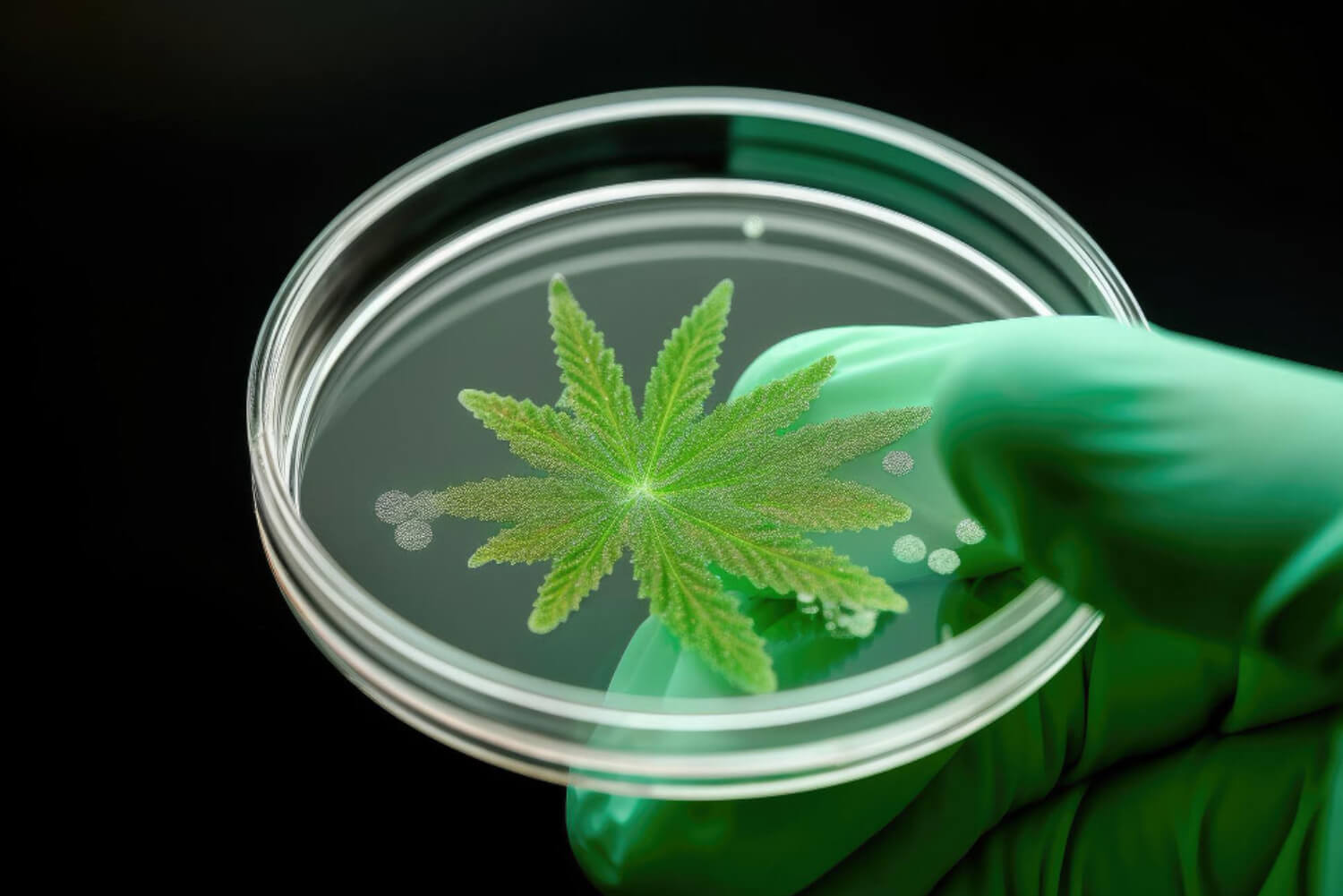
It is critical for anyone who uses cannabis for either recreational or medical purposes to have a solid understanding of the drug's complex chemical makeup, which includes the cannabinoids and terpenes it contains. It gives people the ability to make educated decisions based on the impacts they want and the potential therapeutic benefits they hope to achieve.
Furthermore, continuing research is investigating how particular combinations of cannabinoids and terpenes may provide specific relief for various diseases. If successful, this field of investigation would pave the way for cannabis-based medicines that are more individualized and effective.
Common Methods Of Cannabis Consumption
There are various methods of cannabis consumption, each offering a different experience and onset of effects. Each person is free to select the strategy that caters most closely to their tastes, the results they seek, and their overall objectives. The following is a list of frequent ways that cannabis is consumed:
- Smoking:
- Joint: Cannabis flowers rolled into a cigarette-like paper.
- Blunt: Cannabis rolled into a hollowed-out cigar or cigarillo wrap.
- Pipe: A handheld device with a bowl for packing and smoking cannabis.
- Bong: A water filtration device that cools and filters the smoke.
2. Vaporizing:
- Dry Herb Vaporizers: Devices that heat cannabis flowers or concentrates to produce vapor without combustion.
- Oil Cartridges: Pre-filled cartridges that attach to a battery-powered vaporizer pen.
3. Edibles:
- Cannabis-infused foods and beverages include brownies, cookies, gummies, chocolates, and infused drinks.
- These products undergo a process called decarboxylation, where the cannabis is heated to activate its compounds before being added to the recipe.
4. Sublingual Administration:
- Tinctures: Liquid extracts infused with cannabinoids, typically consumed by placing a few drops under the tongue for quick absorption.
5. Topical Application:
- Cannabis-infused lotions, creams, balms, and oils are applied directly to the skin.
- These products are primarily used for localized relief from pain, inflammation, and skin conditions.
6. Dabbing:
- Dabbing is the practice of heating cannabis concentrates, such as wax, shatter, or budder, over a hot surface and then inhaling the vapor produced by heating the concentrates through a dab rig or a vaporizer.
7. Transdermal Patches:
- Thin patches infused with cannabis extracts adhere to the skin, delivering cannabinoids directly into the bloodstream.
It is essential to keep in mind that the manner in which a substance is taken can significantly impact the speed with which its effects begin, how long they last, and how intense they are. Smoking and vaporizing generally have more immediate consequences than edibles and topicals, which may take longer to start working but have benefits that linger for a more extended period. In addition, it is essential to maintain proper dosage control when eating cannabis, particularly when consuming edibles, because the onset of effects might be delayed and the potency can vary.
When selecting the appropriate mode of consumption, it is crucial to take into account important considerations such as the desired effects, level of ease and discretion required, and personal choice. It is recommended to start with minimal doses, particularly for beginners or inexperienced users. Additionally, it is essential to be informed of the legal rules that pertain to the consumption of cannabis in your particular state.
Weed's Effects On The Blood
The question of whether weed or cannabis acts as a blood thinner has been a topic of interest and discussion. Blood thinners, also known as anticoagulants, are medications used to prevent or treat blood clots, which can lead to serious health conditions. While some studies have suggested that cannabis may have anticoagulant properties, the evidence is not yet definitive.
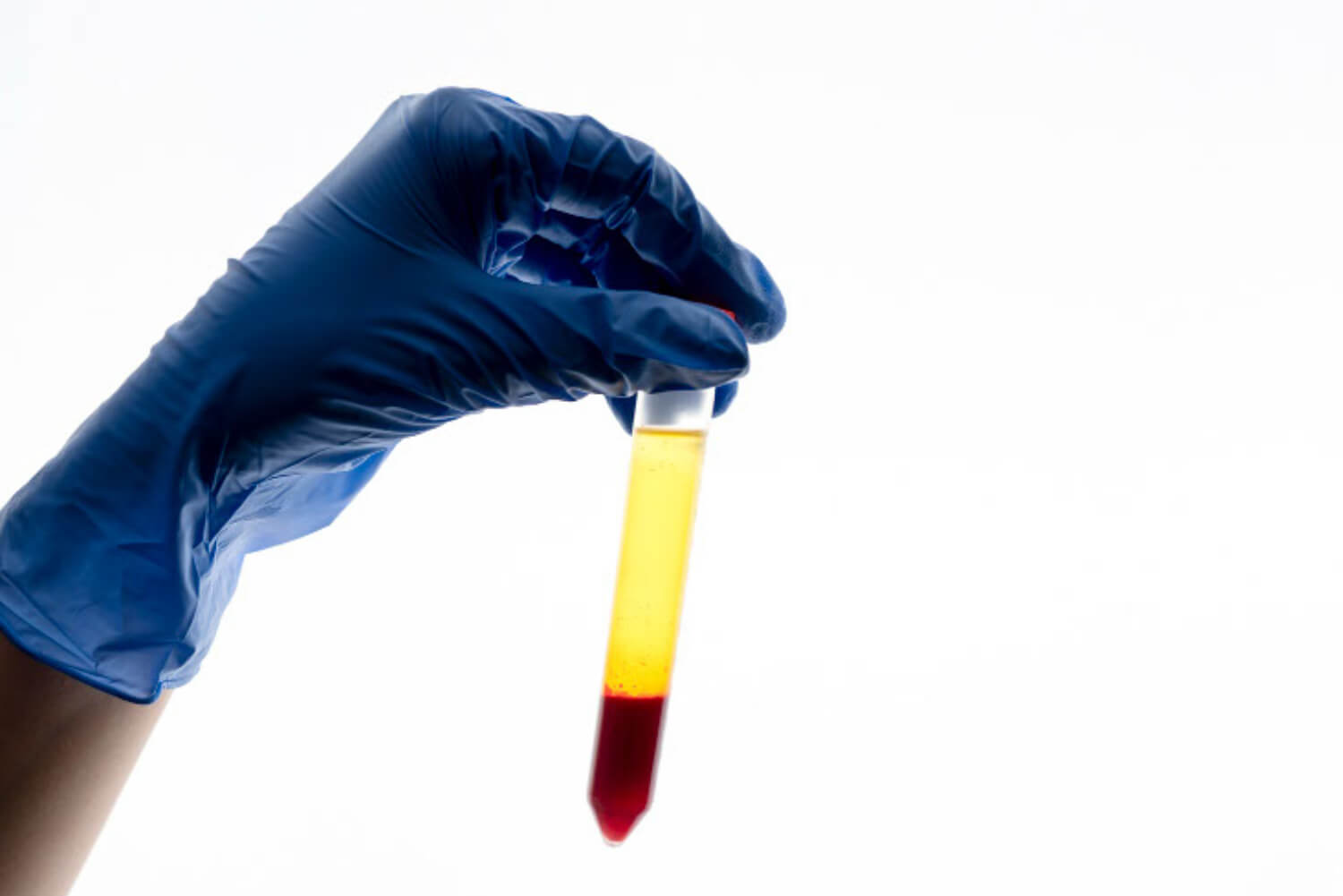
Cannabis contains various chemical compounds called cannabinoids, including THC (tetrahydrocannabinol) and CBD (cannabidiol). These cannabinoids interact with the body's endocannabinoid system, which regulates various physiological processes. Some studies have indicated that cannabinoids, mainly THC, may affect platelet function and inhibit clot formation, potentially suggesting blood-thinning properties.
However, it is crucial to note that the existing evidence is limited and often conflicting. Some studies have reported an increase in platelet aggregation and clotting factors with cannabis use, suggesting procoagulant effects rather than anticoagulant effects. The effects of cannabis on blood clotting may vary depending on factors such as the specific strain of cannabis, dosage, method of consumption, and individual physiology.
Overview Of The Cardiovascular System And Its Functions
The cardiovascular system, also known as the circulatory system, is a complex structure of organs, blood vessels, and tissues that are responsible for transporting blood throughout the body. It is vital for the removal of toxic substances as well as the transportation of oxygen, nutrients, hormones, and immune cells to the various organs and tissues of the body. When investigating the possible impacts of cannabis on cardiovascular health, having a solid basic understanding of the circulatory system is essential.
The heart is a muscular organ that performs the function of a pump and is located at the center of the circulatory system. It is made up of four chambers, two of which are atriums and two of which are ventricles. While the ventricles are responsible for pumping blood throughout the body, the atria are responsible for receiving blood that has been returned to the heart. The cardiac cycle consists of a sequence of coordinated contractions that work together to ensure that blood is pumped effectively throughout the body.
Another essential part of the cardiovascular system is the network of blood arteries throughout the body. Arteries are responsible for transporting oxygenated blood from the heart, which is then distributed to the body's many organs and tissues. On the other hand, veins are responsible for carrying oxygen-depleted blood back to the heart. Capillaries, the smallest blood vessels, play an essential role in transferring oxygen, nutrients, and waste products between the blood and the tissues surrounding it.
The cardiovascular system is likewise dependent on a finely regulated mechanism to keep blood pressure stable. The force exerted on the walls of blood vessels by the blood circulating throughout the body is referred to as blood pressure.
Due to this pressure, proper blood flow is enabled, which in turn supplies oxygen and nutrients to the cells of the body. Blood pressure is affected by a variety of factors, including the rate at which the heart beats, the volume of blood in the body, the flexibility of blood vessels, and the amount of resistance to blood flow.
Cannabis And Cardiovascular Health
When investigating the impacts that cannabis has on the cardiovascular system, it is imperative to take into account the potential effects that cannabis can have on one's rate of heartbeat and blood pressure.
According to research, using cannabis may cause a momentary increase in heart rate as well as a minor elevation in blood pressure, particularly during the acute intoxication phase of the high. However, the long-term impacts and implications of these short-term changes on cardiovascular health are currently being investigated and continue to be a topic of active research in the scientific community.
In general, the cardiovascular system is a complicated and critical system responsible for ensuring that organs and tissues can perform their functions correctly and for keeping the blood circulating properly.
Contextualizing the potential effects of cannabis on cardiovascular health becomes more manageable as more of its complexities are understood, and this understanding lays the groundwork for additional inquiry and research in this field. Before beginning to use cannabis or making any other alterations to their regular routine, those with cardiovascular diseases or concerns should discuss their options with medical professionals. It is vital to keep this in mind.
Effects Of Cannabis On Heart Rate And Blood Pressure
When evaluating the effects of cannabis on heart rate and blood pressure, it is vital to recognize that individual reactions can vary and depend on factors such as the strain of cannabis, the dosage, the mode of ingestion, and an individual's unique physiology. Even though cannabis use has been linked to momentary heart rate and blood pressure elevations, it is essential to remember that these effects are often minor and temporary.
The ability of cannabis to produce relaxation and reduce tension is one of the potential beneficial effects that cannabis may have on heart rate. After using cannabis, many people report feeling more relaxed and having less anxiety, both of which may be factors that lead to a reduced heart rate when the individual is at rest. This, in turn, can foster a more relaxed mood and may help ease symptoms linked with ailments such as anxiety disorders and high blood pressure.
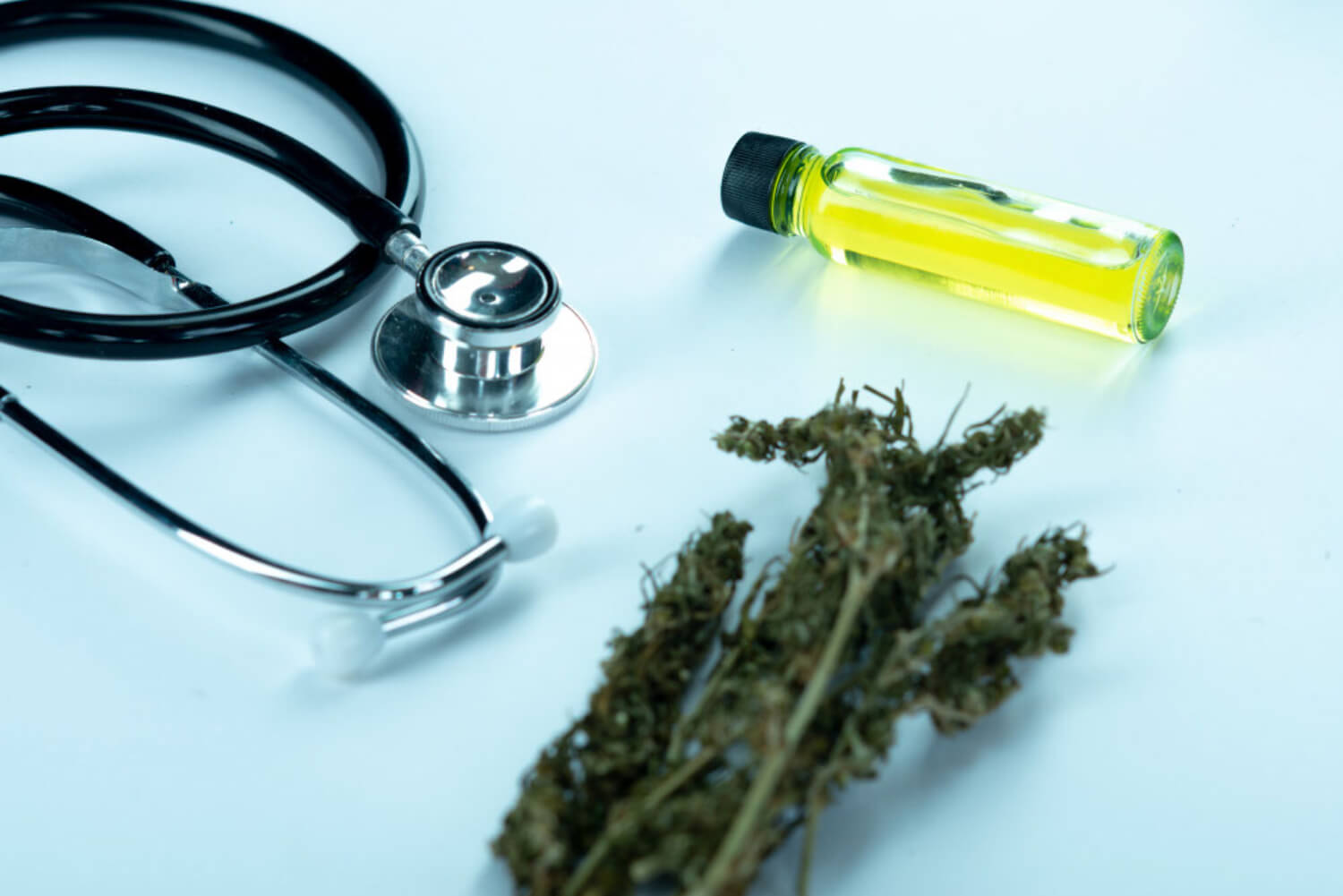
In addition, several cannabinoids contained in cannabis, such as CBD, have been investigated for the possibility that they possess qualities that can lower blood pressure. CBD has demonstrated potential in lowering blood pressure in preclinical and human research, suggesting that it may be a viable treatment alternative for people suffering from hypertension or high blood pressure.
Another aspect that should be taken into consideration is the possibility that cannabis has vasodilatory effects. Vasodilation is the process of expanding blood vessels, which can lead to increased blood flow and decreased resistance within the cardiovascular system.
Certain medications can bring about this effect. Consumption of cannabis may result in temporary vasodilation, according to some research findings. This vasodilation may benefit patients who suffer from illnesses such as atherosclerosis or other cardiovascular disorders. When contemplating the use of cannabis as a potential supplement to cardiovascular health, it is essential to consider both users' reactions and their existing medical conditions.
The Potential Impact Of Cannabis On Blood Clotting
Understanding the potential impact of cannabis on blood clotting is a topic of significant interest and ongoing research. When a blood artery gets damaged, the critical process of coagulation, also known as blood clotting, helps avoid excessive bleeding by stopping blood flow. However, an imbalance in the clotting system can lead to dangerous blood clots, which can result in significant medical illnesses such as deep vein thrombosis, stroke, or pulmonary embolism.
The process of clotting is complicated, and research suggests that cannabis may have effects that are both inhibitory and stimulatory on it. As a result, this topic is challenging to investigate. Cannabinoids such as tetrahydrocannabinol (THC) and cannabidiol (CBD), both of which are contained in cannabis, have been shown in some research to have the potential to inhibit the formation of blood clots by interfering with the aggregation of the platelet.
Platelets are relatively small blood cells that play a significant role in clotting. As a result of this, decreasing platelet aggregation has the potential to lower the danger of developing an excessive blood clot. Some additional research has found that cannabis use may have procoagulant effects, which simply means it may speed up blood clotting.
According to the findings of this research, cannabis use may result in an increase in the activity of platelets and specific components that contribute to blood clotting, which may, in turn, increase the likelihood of blood clots forming. In spite of this, it is essential to point out that these findings are not yet completely conclusive, and additional research is required to build a greater understanding of the connection between cannabis and the coagulation of blood.
The potential impact on blood coagulation may vary from person to person depending on elements such as the dosage, frequency, and mode of cannabis ingestion, as well as the individual's existing health condition. In addition, it is important to consider the interactions between cannabis and pharmaceuticals, particularly those that affect blood clotting or platelet function.
People who already have problems with their blood clotting or who are taking medications that prevent blood clots should discuss the use of cannabis with their doctors before beginning treatment with cannabis because it is a possibility that it will interact negatively with the treatment they are receiving.
Cannabinoids And Blood Thinning Properties: Exploring Cannabinoids
Cannabinoids, which are chemical components that can be found in cannabis, have received a lot of attention due to the possibility that they possess therapeutic effects. Cannabinoids tetrahydrocannabinol (THC) and cannabidiol (CBD) are two of the most notable cannabinoids, and their effects on a variety of physiological processes, including their ability to thin the blood, have been the topic of a significant number of research investigations.
According to a number of research findings, the principal psychoactive component of cannabis, known as THC, possesses anticoagulant properties. It is possible that it will prevent platelet aggregation, a critical component in blood clot formation, which is the process by which platelets come together to form blood clots. If this happens, the risk of aberrant clot formation will be decreased. However, the precise processes by which THC exerts these effects are not yet fully understood, and additional research is required to establish a greater knowledge of its impact on blood thinning. Currently, THC is illegal in most countries across the world.

Cannabidiol, or CBD, has attracted a lot of attention due to its wide range of medicinal applications and has been investigated for its effects on several different health disorders. Although it is generally accepted that CBD does not possess direct anticoagulant characteristics, recent studies suggest that it may indirectly affect the systems responsible for blood coagulation.
It has been demonstrated that CBD interacts with the endocannabinoid system of the body, which is responsible for the regulation of a wide variety of physiological functions, including the activity of platelets. CBD can influence platelet activity and could even affect the clotting process according to its ability to modulate the endocannabinoid system.
It is essential to keep in mind that research into the ways in which THC and CBD affect blood thinning is still in its early stages and that there is a lack of evidence currently available. Additionally, individual responses can differ, so it is important to consider things like the dosage, the method of administration, and one's overall health.
Before using cannabis or products derived from cannabis, those with a history of blood clotting issues or are now taking anticoagulant drugs, blood thinner medications are strongly encouraged to discuss the matter with their primary care physicians. This is because cannabis and products derived from cannabis have the potential to interact with the treatment that they are already receiving.
There is evidence that cannabinoids, including THC and CBD, may have significant blood thinning characteristics. However, additional research is required to thoroughly understand the processes and therapeutic implications. Thus, is marijuana a blood thinner or whether you can use marijuana with blood thinners, is a popular topic of discussion.
Variations In Individual Responses To Cannabis: Age, Gender, And Genetic Influences
It has been shown that different people react differently to cannabis, with age, gender, and heredity being among the essential elements in determining how an individual responds to the effects of the plant. It is vital to understand these variations to adjust one's use of cannabis and effectively manage potential hazards. Can medical marijuana replace other medications you take? This is something you should understand within some usage timeframe. However, you won't have a heart attack or any other adverse effects if you use the substance reasonably.
A person's age is a significant aspect that can affect how they react to cannabis. Cannabis tends to have a more profound impact on the brains of adolescents and young adults than it does on the brains of older individuals. This is because the brains of these age groups are still developing.
According to a number of studies, starting to use cannabis at an early age and doing so often during adolescence may result in long-term cognitive deficits as well as an increased risk of mental health problems. On the other hand, due to age-related changes in metabolism and physiological sensitivity, older people may experience effects that are more pronounced.
When thinking about the effects of cannabis, gender variations should also be taken into consideration. According to certain studies, girls' hormone levels and metabolic processes are different from those of males, which may explain why they have a stronger reaction to cannabis. For instance, It has been discovered that estrogen heightens THC's euphoric effects. In addition, it is possible that women are more prone to developing a condition associated with cannabis use and that women and men have distinct reasons for using cannabis.
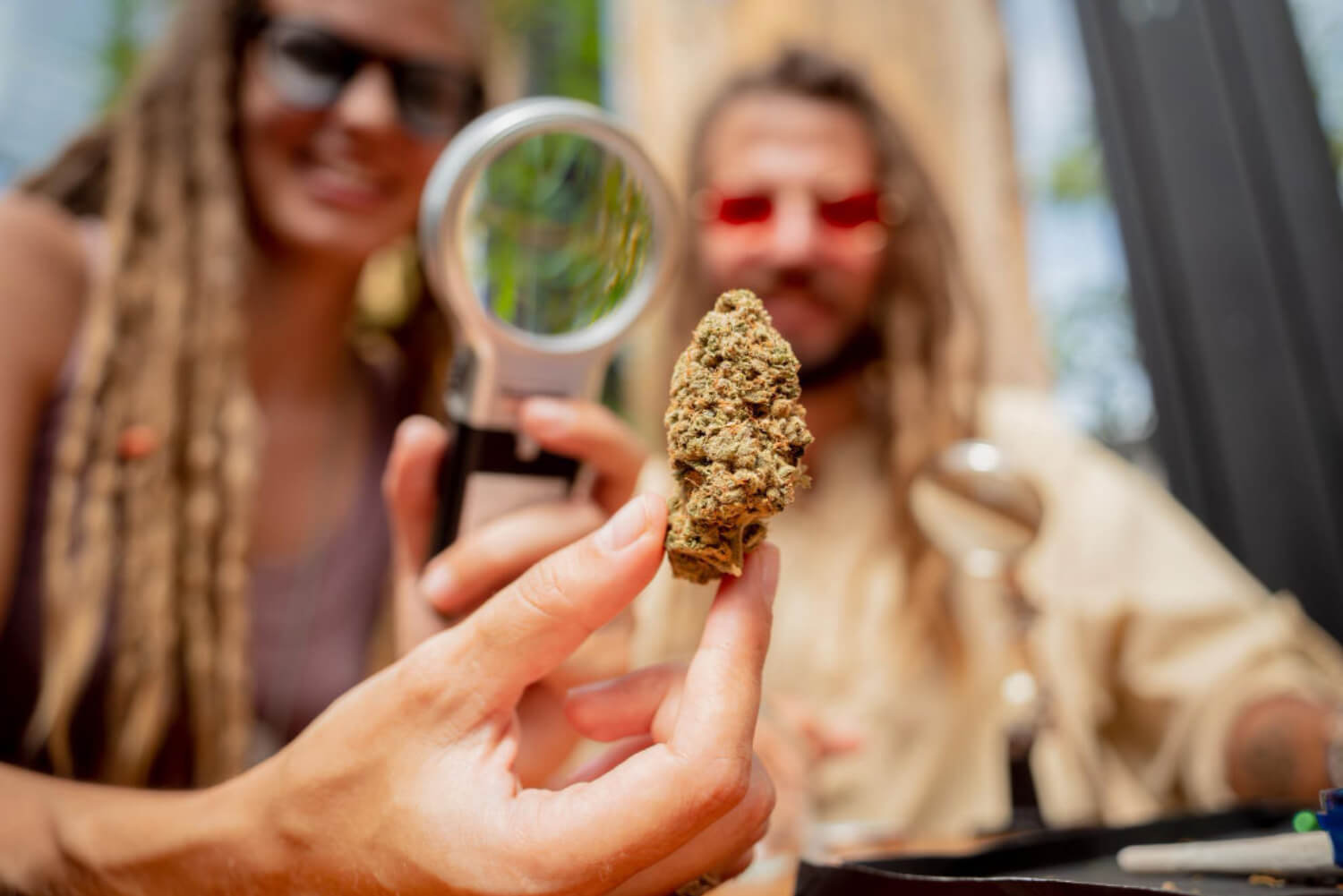
Genetics plays a substantial role in determining an individual's reaction to cannabis. Differences in the enzymes that are responsible for metabolizing cannabinoids can occur naturally in people's genes, and these differences can affect how quickly and effectively the body processes cannabis chemicals.
For example, the enzyme known as cytochrome P450 2C9 (CYP2C9) plays a function in the metabolism of THC. Genetic differences in this enzyme can modify THC clearance rates and change an individual's reaction to cannabis. A person's level of sensitivity to cannabinoids and the effects they have can also be affected by variations in the genes that code for cannabinoid receptors, such as the CB1 receptor.
In addition, there is evidence that genetic variables have a role in determining an individual's susceptibility to developing a cannabis use problem. Certain people's genes make them more likely to engage in addictive behaviors. According to recent research findings, specific genetic variants are related to an increased risk of becoming dependent on cannabis.
It is essential to keep in mind that although age, gender, and heredity all have the potential to affect how a person reacts to cannabis, they are not the only elements that decide the outcomes. Environmental circumstances also play a substantial effect, the amount of cannabis consumed in the past, as well as the dosage. In addition, each person's endocannabinoid system, which is the part of the body that interacts with cannabis, is distinct, which results in variances in responses.
It is absolutely necessary for responsible cannabis use to have an understanding of these individual variances. Consumption of cannabis that is tailored to an individual's age, gender and the genetic predispositions they were born with can help reduce the risk of adverse effects and maximize the possible therapeutic benefits.
Potential Development Of Cannabis-Based Blood Thinners
As researchers continue to investigate the therapeutic potential of cannabinoids, there has been increased interest in the prospect of developing blood-thinning medications derived from cannabis. Traditional blood thinners, such as warfarin and aspirin, are frequently used to either prevent or treat conditions that cause abnormal blood clotting.
However, these medications do have some restrictions, and there is a possibility that they will cause adverse effects. Cannabinoids, which are found in cannabis in a wide variety, give an intriguing opportunity for the research and development of alternative therapies for blood thinning.
Cannabinoids such as tetrahydrocannabinol (THC) and cannabidiol (CBD) have demonstrated promising anticoagulant activity in preclinical investigations. These chemicals might affect platelet activity and block the formation of clots, suggesting that they could be a natural alternative to traditional blood thinners.
Cannabinoids have also been found to have anti-inflammatory characteristics, which may be another factor that contributes to their potential use as blood thinners. Cannabinoids may be able to assist in the maintenance of normal blood flow and the prevention of abnormal clotting by lowering inflammation.
A Variety Of Problems And Factors To Take Into Consideration
Cannabinoids and already available anticoagulant medicines may have a synergistic effect, which is one particular area of research focus. According to research, combining marijuana with conventional blood thinners may improve the efficiency of either treatment or lower the amount of medication that is necessary to get the desired effect.
This could potentially reduce the adverse effects that are associated with greater dosages. Cannabinoids and traditional blood thinners need to be studied further to find the most effective combinations, doses, and potential interactions between the two types of drugs.
The production of blood thinners derived from cannabis involves a variety of problems and factors to take into consideration. Cannabinoids can have biphasic effects, meaning their influence might change depending on the dosage, so it is extremely important to ensure that the dosage is consistent and stable.
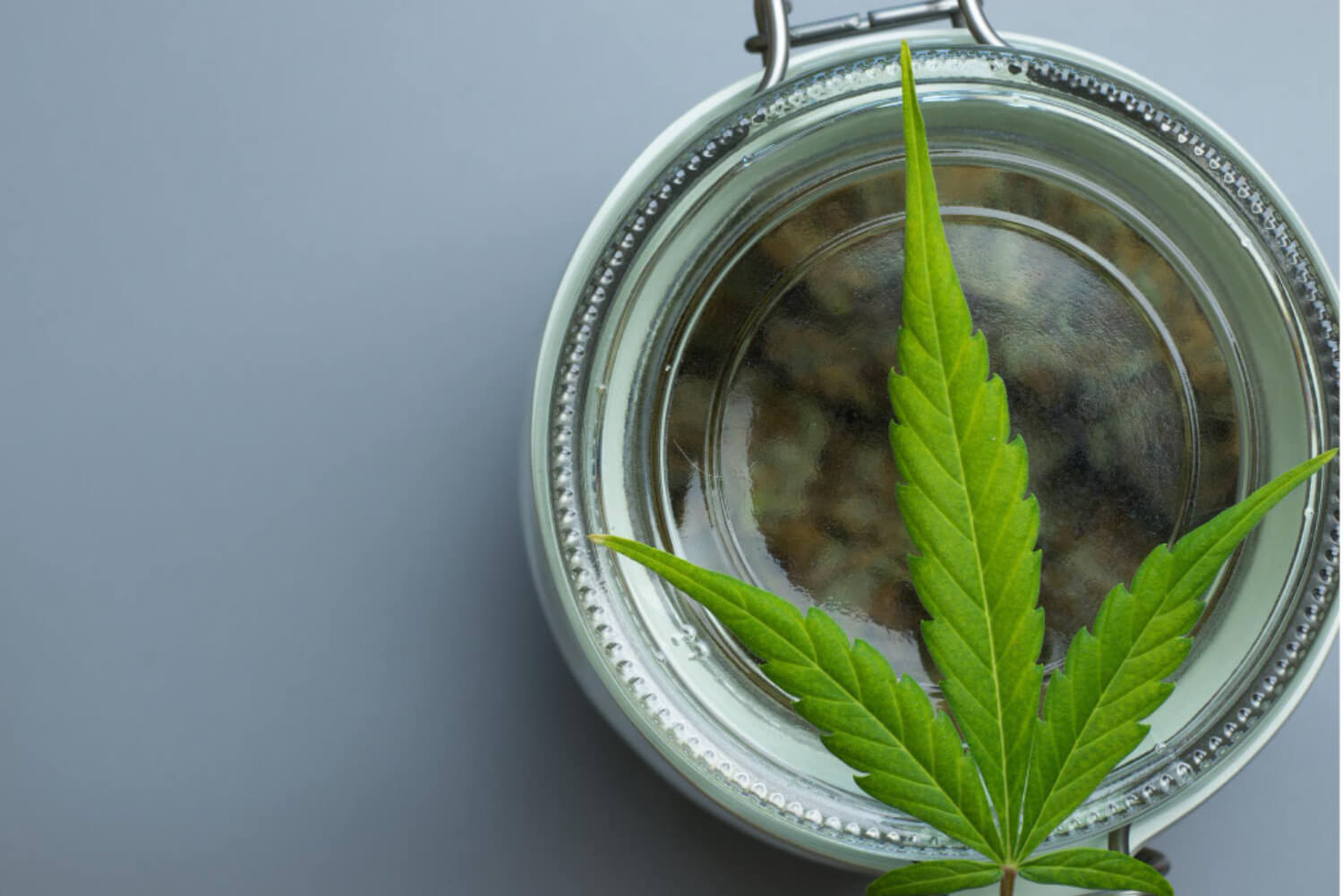
Blood thinners that are derived from cannabis need to go through rigorous clinical testing in order to determine whether or not they are safe, whether or not they are effective, and the best way to administer them. In addition, great consideration must be given to the possibility that THC will have psychoactive effects to protect patients' mental health and maintain their cognitive capabilities.
It is important to point out that even while the investigation into the possibility of developing blood thinners based on cannabis is an interesting area of research, it is still in its early phases. The complex legal and regulatory environment that surrounds cannabis adds a layer of difficulty to this undertaking.
Despite this, there is a rising interest in investigating the therapeutic potential of cannabinoids for various medical problems, including blood clotting disorders. This interest is expanding as both the scientific understanding of cannabinoids and the legalization of cannabis develops.
The Bottom Line
Whether weed or cannabis acts as a blood thinner is still a matter of ongoing research and scientific inquiry. While there are indications that certain cannabinoids found in cannabis may have anticoagulant properties, the evidence is not yet definitive and often conflicting. Some studies suggest that cannabinoids, mainly THC, may affect platelet function and inhibit clot formation, implying potential blood-thinning effects. However, other studies have reported procoagulant results and increased clotting factors associated with cannabis use.
It is crucial to approach this topic cautiously and recognize the current evidence's limitations. The effects of cannabis on blood clotting may vary based on factors such as the strain of cannabis, dosage, consumption method, and individual physiology. It is not advisable to rely solely on cannabis as a substitute for medically prescribed blood thinners when necessary.
Individuals with existing blood clotting disorders or those at high risk of blood clots should consult with healthcare professionals before incorporating cannabis into their treatment regimen. Healthcare providers can offer personalized guidance, taking into account personal medical history, current medications, and potential interactions with cannabis.
As research into the therapeutic properties of cannabinoids continues to advance, further studies are needed to elucidate the mechanisms and potential benefits or risks of cannabis concerning blood clotting. This ongoing exploration may contribute to developing novel treatments or alternative options for individuals with blood clotting disorders. It is crucial to stay informed and follow the guidance of healthcare professionals to make informed decisions about cannabis use and its potential impact on blood clotting and overall health.
Disclaimer: This material is for informational purposes only and should not be relied on for legal, medical, financial, or any other form of professional advice.








